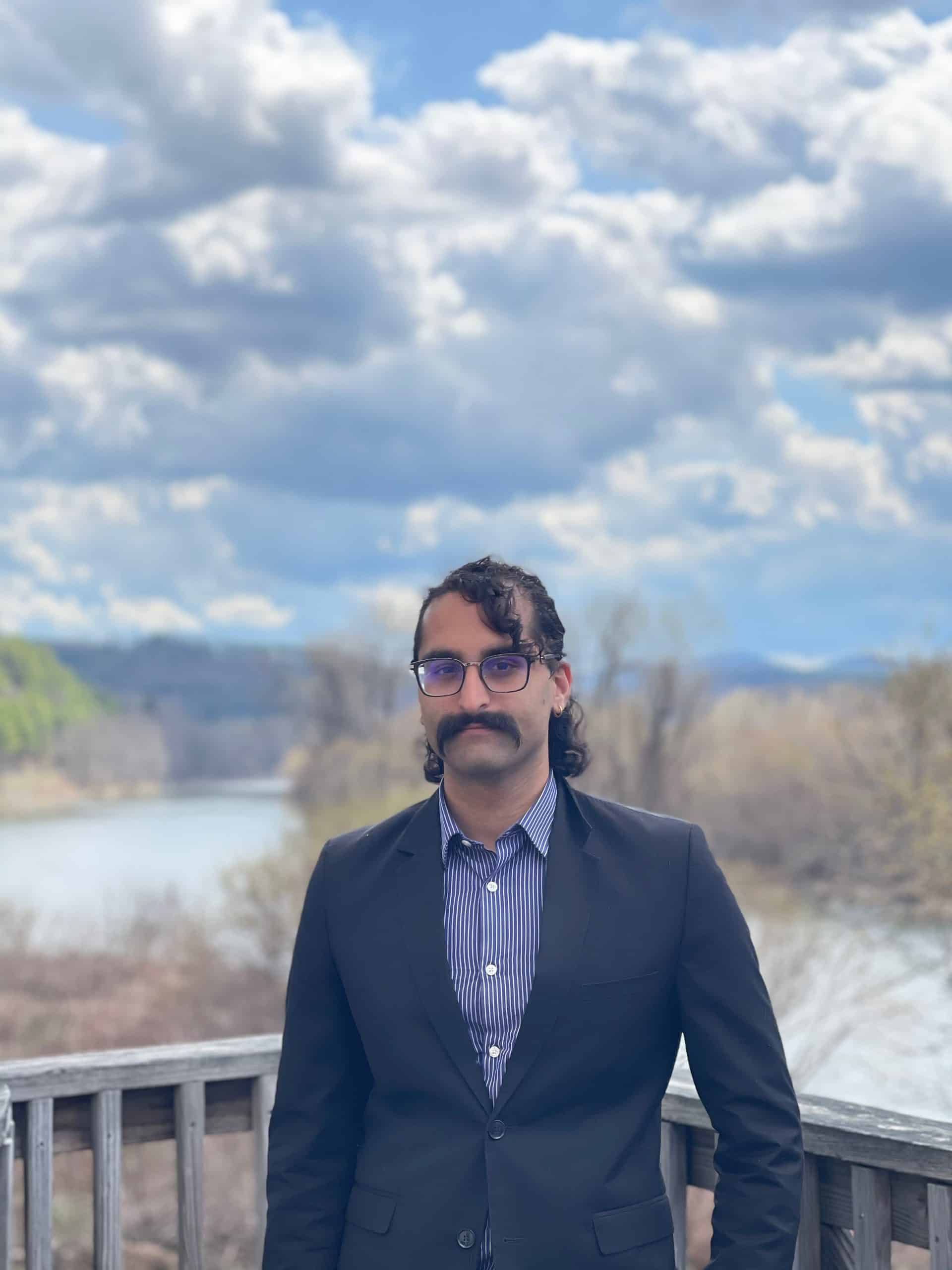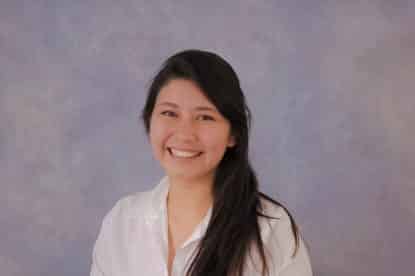June 8, 2021
Each year, a select group of Vermont Law School (VLS) students participates in an International Climate Law course that takes them to the United Nations Climate Change Conference (also known as the “COP” conference). Under the supervision of professor Sarah Reiter and various partners, students work as delegates at the event and support nations during the negotiations. This year, they (virtually) supported the Seychelles as the country developed its Nationally Determined Contribution (NDC) under the Paris Climate Agreement. Below, student-delegates Mitul Patel JD/MERL’21 and Andrea Salazar JD/MERL’22 describe the experience.
From Mitul Patel JD/MERL’21:
I am currently a third-year JD student, with a joint master’s in Energy Regulation and Law. During fall 2020, I was a student delegate for the UN Climate Change Conference, working under the supervision of Professor Sarah Reiter, TA Kristyn Ostanek, and Ms. Angelique Pouponneau, CEO of the Seychelles Conservation and Climate Adaptation Trust (SeyCCAT). Our class worked on three different projects supporting SeyCCAT—an organization based in the island nation of Seychelles—before the COP26 conference in Glasgow, Scotland. Although our class was virtual due to the pandemic and unable to travel, our important work still continued.
Two projects focused on climate finance mechanisms and an overall evaluation of submitted Nationally Determined Contributions—the national climate plans that countries adopt to achieve the targets outlined in the Paris Agreement. My team, however, instead focused on an “ocean-inclusiveness” study. Our goal was to define this term in the NDC context, and then measure ocean-inclusiveness of NDCs using this definition. Specifically, we assessed inclusion of ocean issues, like blue carbon and coastal protection, within submitted and updated NDCs. To inform our project, we relied on: (1) papers written by international legal scholars specializing in ocean topics; (2) papers and reports on ocean, shoreline, and atmosphere science; and (3) many sources of international law. Using these sources, and others already in our syllabus, we devised our own methodology to assess ocean-inclusiveness in NDCs. Our research culminated in a presentation of our findings and a report for SeyCCAT.
As a scientist before law school, this was the first time I was able to sincerely apply my technological and scientific knowledge to a legal question. There is no ‘one way’ or ‘best way’ to include the ocean within NDCs. As we learned during the first few weeks of class, international consensus, now codified in the Paris Agreement, relies heavily on the recognition of disparate situations within the signatories’ respective nations. This emotion pushed our team to create an informed and calculated methodology which could deliver useful and fair results on our final determinations of ocean-inclusiveness. We could not have done this without our combined skills and past experience in science and technology.
“This class opened my eyes to how different nations approach dialogue, the intention behind these positions…and the depth of knowledge one needs to be successful in international climate negotiations.”
In the end, we read many NDCs, analyzed them for their ocean-inclusiveness using our methods, and proposed our conclusions to SeyCCAT for consideration. I was most proud of my team for not sticking to a hard definition of ocean-inclusiveness. Instead, in recognition of different nations’ situations, we used a scale to demonstrate individual nations’ progress on ocean-inclusion. This way, we hoped to encourage further work on the ocean aspect of climate strategies, rather than simply assigning each NDC an ocean-inclusive tick mark.
I strive to work in the field of decarbonization and development, hoping to find equitable resolutions to historic environmental and cultural problems that often impede success at the international level. This class opened my eyes to how different nations approach dialogue, the intention behind these positions, the laws playing a role within this, and the depth of knowledge one needs to be successful in international climate negotiations. I highly recommend this class for anyone interested in gaining skills around international consensus-building, those seeking to apply science and technology to the law, and to those trying to expand their understanding of international decarbonization in general.
From Andrea Salazar JD/MERL’22:
The International Climate Law course demystifies the complex supra-national climate structure, and empowers climate advocates. As a student delegate, I now better understand the international climate treaty regime because we analyzed the architecture of the United Nations Framework Convention on Climate Change, Kyoto Protocol, and the Paris Agreement.
Designed and taught by Professor Sarah Reiter, the course prioritized working with a lens that is anti-imperialist and anti-racist. Before honing our own negotiation skills, we explored how grammar can be used as a tool in negotiations. We also learned to question the western definition and overvaluation of “good grammar” through a discussion with our client and guest speaker—a Black woman negotiator from a developing island nation—where English is not the first language. This was a lesson in navigating the explicit and implicit power that comes with proximity to the dominant culture. We shared our individual climate stories, to embrace and learn from the lived experiences of one another. At the same time, this helped ground our work in solidarity with our client and the Seychelles.
During mock negotiations, we decoded treaty language, drafted opening statements for a plenary session, and negotiated draft decision text. The simulated negotiations highlighted the various positions and underlying interests of developed and developing nations and provided us with tools to better negotiate. I walked away more confident in my abilities as a negotiator.
“I walked away more confident in my abilities as a negotiator.”
The most exciting part of the course was supporting a small island client in advance of COP26. Our research teams supported the Seychelles Conservation and Climate Adaptation Trust, as it worked on the drafting of the Republic of Seychelles’ second round Nationally Determined Contribution. My research group tackled the challenge of assessing ambition and conditionality in NDCs. We mapped the current landscape of ambition across both developing and developed nations to provide a snapshot of whether Paris is working.
As I look ahead to a career working in climate justice, the lessons I learned in this course will guide me to center the needs and solutions of people most impacted by climate change.

